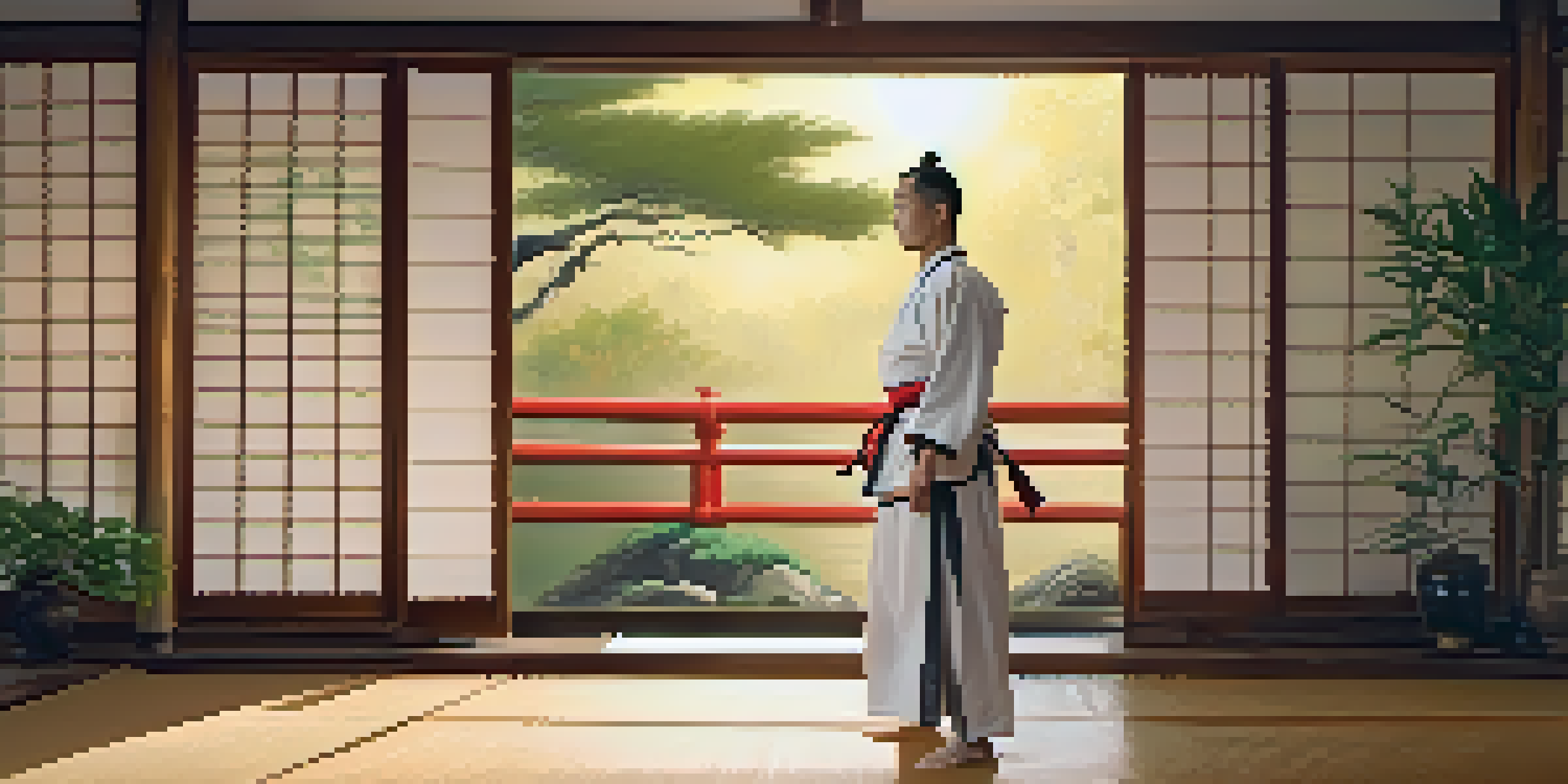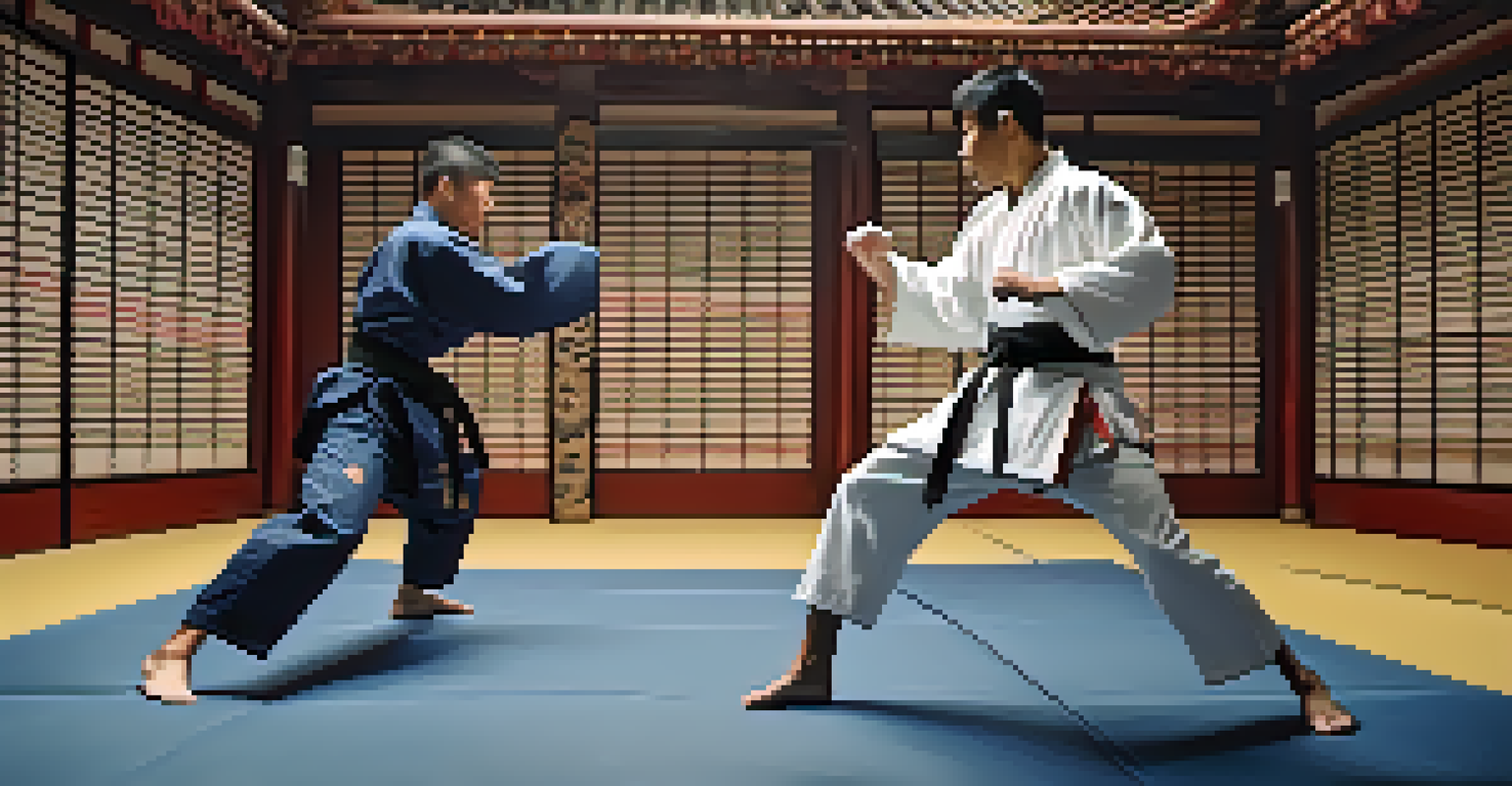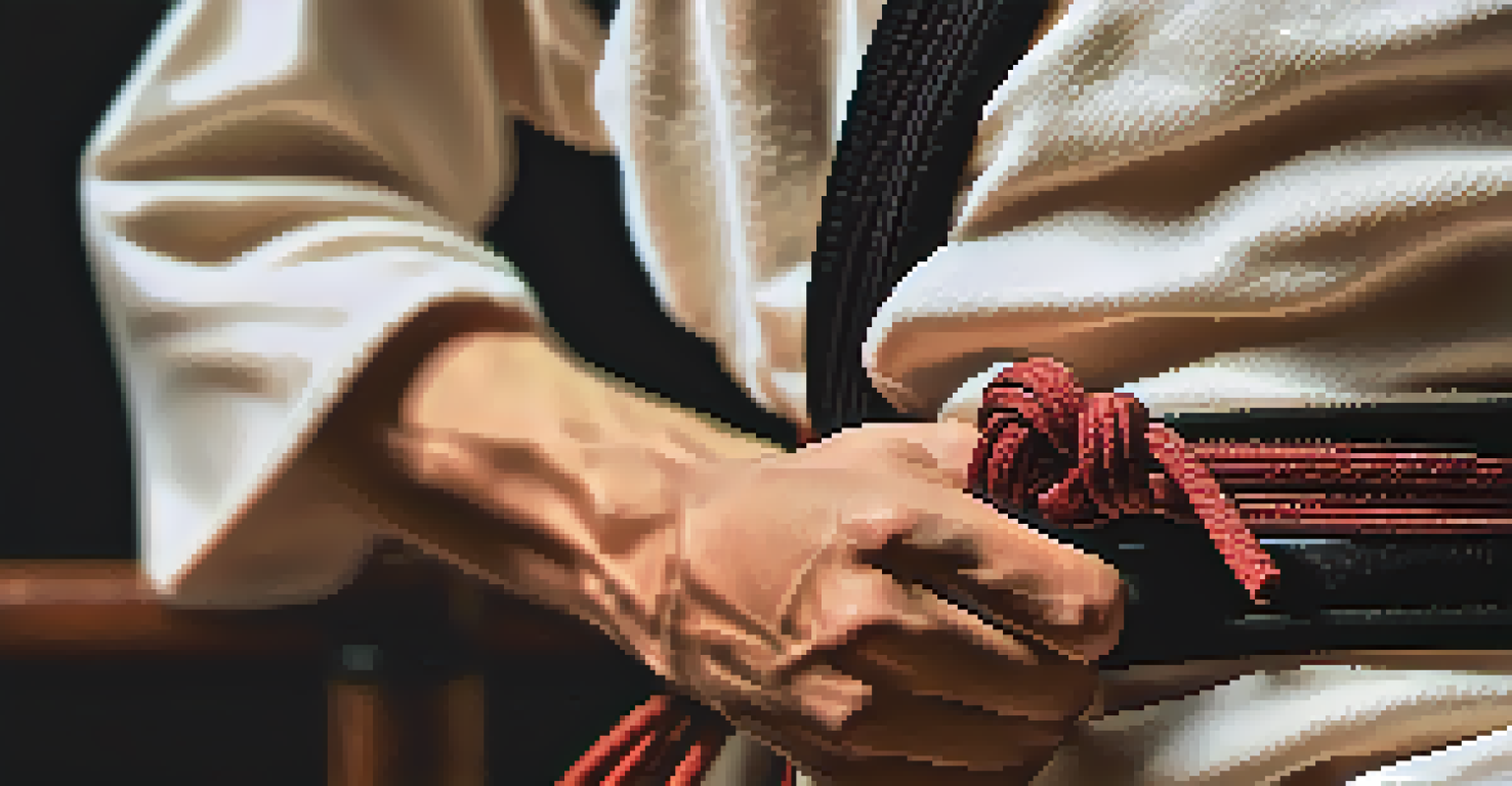Martial Arts Philosophy: Lessons from Ancient Historical Texts

Understanding the Roots of Martial Arts Philosophy
Martial arts are not just about physical techniques; they embody deep philosophical principles. These ancient practices stem from cultures that valued discipline, respect, and mental fortitude. By examining historical texts, we can uncover the wisdom that has guided martial artists for centuries.
The ultimate aim of martial arts is not having to use them.
Many martial arts, such as Kung Fu or Karate, have their origins in philosophical teachings from texts like 'The Art of War' by Sun Tzu. This book emphasizes strategy, adaptability, and the importance of understanding oneself and one’s opponent. Such lessons extend beyond the dojo and into daily life, making martial arts a holistic practice.
In essence, understanding the roots of martial arts philosophy allows practitioners to appreciate the deeper meaning behind their training. It’s about building character, resilience, and a mindset that transcends physical combat.
The Concept of Yin and Yang in Martial Arts
One of the most influential philosophies in martial arts is the concept of Yin and Yang, derived from Chinese philosophy. This principle illustrates how seemingly opposite forces can be interconnected and interdependent. In martial arts, this balance is crucial for mastering techniques and strategies.

For instance, a martial artist must learn when to be aggressive (Yang) and when to be passive (Yin). This duality is not just about combat but also about life balance, teaching practitioners to navigate challenges calmly and effectively. It fosters an understanding that strength can also come from yielding.
Martial Arts Embrace Philosophy
Martial arts are rooted in deep philosophical principles that promote discipline, respect, and personal growth.
By embracing Yin and Yang, martial artists cultivate a more profound sense of harmony within themselves. This philosophy encourages adaptability, making it easier to respond to various situations, both on and off the mat.
The Importance of Respect and Etiquette
Respect is a cornerstone of martial arts philosophy, deeply rooted in historical texts and traditions. Many martial arts forms include rituals and etiquette, such as bowing to instructors and fellow students, symbolizing mutual respect. This practice reinforces a culture of humility and honor.
The more we sweat in peace, the less we bleed in war.
Historical texts often highlight the significance of respect in the development of a martial artist. For example, 'The Book of Five Rings' by Miyamoto Musashi emphasizes respect for one's opponent as a means to grow and improve. This approach fosters a sense of community and camaraderie among practitioners.
Ultimately, instilling respect through these traditions enriches the training experience. It creates an environment where learning is prioritized, and individuals can support one another in their martial arts journeys.
Mindfulness and Presence in Martial Arts Training
Mindfulness is a powerful aspect of martial arts philosophy, encouraging practitioners to be fully present in their training. Drawing from ancient texts, many martial artists learn that the mind-body connection is essential for mastering techniques and achieving personal growth. This awareness allows for greater focus and precision.
Historical figures like Sun Tzu emphasized the importance of mental clarity in combat. By being mindful, martial artists can anticipate their opponent's moves and respond effectively. This principle extends beyond the dojo, helping individuals manage stress and enhance overall well-being.
Balance of Strength and Technique
True mastery in martial arts comes from balancing physical strength with technical skill, emphasizing precision over power.
Practicing mindfulness teaches the value of living in the moment. It fosters a deeper connection to one’s surroundings and encourages a reflective mindset, benefiting both martial arts practice and daily life.
The Role of Perseverance and Resilience
Perseverance and resilience are vital themes in martial arts philosophy, frequently highlighted in historical texts. Many ancient scholars and warriors emphasized the importance of enduring challenges and setbacks as part of the journey. This mindset is crucial for martial artists as they face physical and mental obstacles.
For instance, the teachings of Gichin Funakoshi, the founder of modern Karate, stress that overcoming failure is essential for growth. By learning to embrace adversity, practitioners can develop a strong sense of determination and grit. This resilience builds character and fosters a never-give-up attitude.
Ultimately, the lessons of perseverance remind martial artists that success is a journey marked by challenges. This philosophy encourages them to stay committed to their training and personal development, no matter the hurdles they face.
The Balance Between Strength and Technique
A significant lesson from ancient martial arts philosophy is the balance between physical strength and technical skill. Many historical texts illustrate that true mastery comes not just from brute force, but from understanding the principles behind each technique. This balance allows martial artists to execute moves with precision and effectiveness.
For example, Judo emphasizes the principle of using an opponent's strength against them, showcasing how technique can triumph over sheer power. This idea encourages practitioners to focus on honing their skills rather than solely building muscle, fostering a more nuanced approach to combat.
Self-Discovery Through Training
Engaging in martial arts fosters a journey of self-discovery, helping practitioners understand their strengths and values.
By recognizing the importance of both strength and technique, martial artists can develop a well-rounded skill set. This philosophy promotes continuous learning and adaptation, essential traits for effective training and personal growth.
The Journey of Self-Discovery Through Martial Arts
Martial arts serve as a powerful tool for self-discovery, as emphasized in many ancient teachings. Through rigorous training and introspection, practitioners learn about their strengths, weaknesses, and values. This journey fosters a deeper understanding of oneself and one’s purpose.
Philosophers like Confucius believed that self-knowledge is the foundation of personal growth. In martial arts, this translates to learning from each practice session, reflecting on experiences, and striving for improvement. This continuous process helps individuals develop a strong sense of identity.

Ultimately, the journey of self-discovery through martial arts enriches one’s life. It encourages practitioners to explore their potential and apply the lessons learned to various aspects of their lives, promoting holistic development.